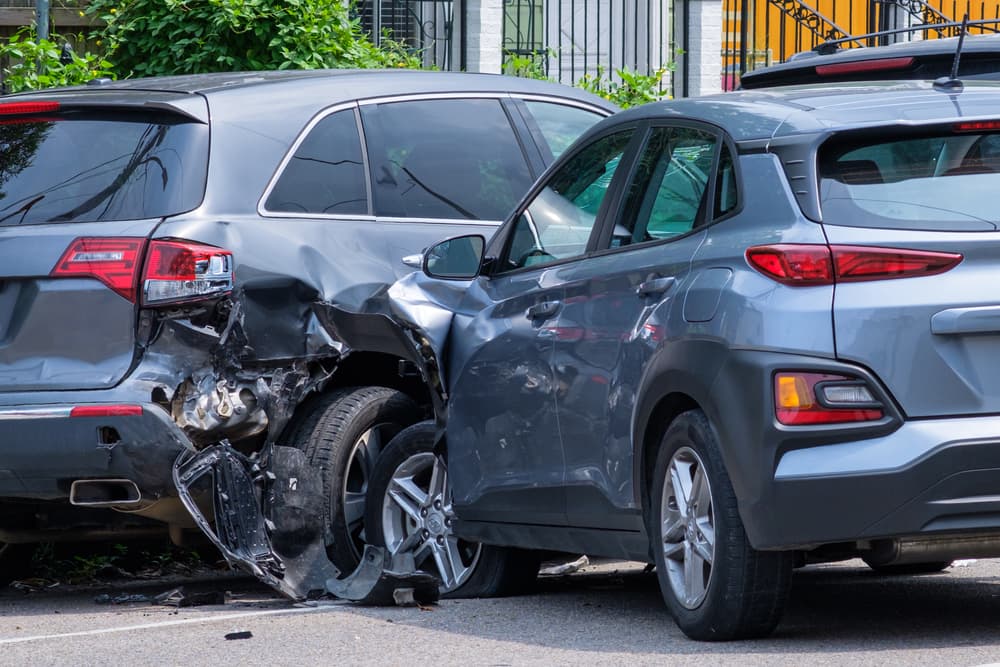If a negligent vehicle driver struck and injured you while you were walking across the street in Florida, you might consider your options for obtaining compensation for your injuries.
You may pursue compensation by having an attorney file an injury claim with the at-fault driver’s insurance company. Most injury claims settle outside court, and your attorney can advocate for you and negotiate to get the highest settlement possible.
However, you may wonder how long the settlement process will take and when you will receive your money.
No one can accurately predict how long the process will take because it depends on too many factors. Some things, though, can speed up or slow down the process.
You should understand what the process involves so you know what to expect. You should also discuss your case with an experienced pedestrian accident attorney who can offer an objective and realistic opinion on how long it will take to settle your claim and how much money you can expect to receive.
What Factors Can Affect the Settlement Process for a Pedestrian Accident Claim?
Several factors can affect the timeframe and resolution of a pedestrian accident claim, including:
Severity of Injuries
The severity of your injuries can significantly affect the settlement timeframe. Claims involving minor injuries may resolve relatively quickly, while claims involving more severe or long-term injuries may require extensive medical treatment and evaluation, which can prolong the process.
Additionally, injuries that prevented you from working or caused a permanent disability can affect the process since you will need to determine the full extent of your injuries by hiring independent medical experts and other professionals.
Liability and Disputed Claims
 An insurance company that disputes fault for the accident can complicate the claims process. Investigations may need to determine liability, which can take time. If the accident involved multiple parties, determining their respective degrees of fault may prolong the resolution.
An insurance company that disputes fault for the accident can complicate the claims process. Investigations may need to determine liability, which can take time. If the accident involved multiple parties, determining their respective degrees of fault may prolong the resolution.
Florida follows a modified comparative negligence rule, which means the compensation you will receive decreases by the percentage of your fault for the accident. Your attorney can work diligently to gather the necessary evidence to place all liability on the at-fault party and advocate for you if the insurance company tries to blame you.
Insurance Company Cooperation
The responsiveness and cooperation of the insurance company involved can affect the settlement timeframe. Some insurance companies may proactively and promptly negotiate a fair settlement, while others may use delay tactics or offer low settlement amounts, leading to a lengthier process.
Gathering Evidence
The process of gathering evidence can affect the timeline. Your attorney will need to collect a lot of evidence and documentation to support your claim, including accident reports, witness statements, medical records, and expert opinions. Although time-consuming, this step builds a strong case and bolsters your claim for compensation.
Jurisdiction and Legal Processes
The legal procedures and timelines can vary between jurisdictions. Some jurisdictions may have expedited processes for resolving personal injury claims, while others may have lengthier court procedures or mandatory settlement conferences that affect the overall timeframe.
Negotiations and Settlement Offers
The negotiation process with the insurance company can vary in length. It depends on the complexity of the case, the amount of damages involved, and the willingness of both parties to reach a fair settlement. Sometimes, negotiations can resolve quickly, while in other cases, it may take several rounds of negotiation.
You do not want to accept an initial, lowball settlement offer. Insurance companies often offer a low settlement hoping the injured party will accept the money and move on. However, the settlement will probably not cover all your damages, and if you accept the settlement, you cannot pursue additional compensation in the future.
Work with your attorney to carefully and completely determine and document the full extent of your injuries and losses so you know how much you need to cover your damages.
Your Attorney’s Experience and Skills
Your attorney needs a thorough understanding of the law and how to effectively negotiate with insurance companies. You need a shrewd and tenacious negotiator who understands the defense tactics insurers use to reduce or deny claims, and they should never accept a low settlement just to resolve a case and get paid. In fact, it’s against the law for your lawyer to accept a settlement offer without your authorization.
An astute and experienced pedestrian accident attorney can fight for you each step of the way and increase your chances of getting the maximum compensation you deserve. They can also stay on top of your case and send requests as frequently as necessary to the insurance company to get responses. However, be wary of any attorney who promises you results or specific timeframes on when they will resolve your case.
Other factors can affect the settlement timeline as well, such as your age and whether you have a preexisting medical condition, among others.
Going to Court
If your attorney cannot reach a settlement with the insurance company through negotiations, they may have to take the insurance company to court and sue for the compensation you need. Your lawyer may also take the insurer to court if they act in bad faith by unjustly denying your valid claim or unnecessarily delaying the processing of your personal injury claim without justification.
If you must take your case to court, it can significantly extend the timeframe, as court schedules, discovery processes, and potential trial dates come into play. The length of the litigation process depends on the court’s caseload and the complexity of the case. But you might need to do that to get the compensation you deserve.
Consult an experienced personal injury attorney who can evaluate your case and provide you with an estimate of the expected timeframe based on these factors.
How Long Does It Take to Get a Settlement Check After a Pedestrian Accident?
Once you reach a settlement with the insurance company and all parties sign the settlement agreement, the insurance company’s legal counsel will initiate the process of cutting your settlement check. Under Florida law, the insurer has 20 days from signing the settlement agreement to issue your check. If they do not tender within that time, they may owe you interest on the amount, or you may have other legal options, such as bringing a bad faith action against them.
Provided all goes smoothly, the insurer will send the check to your attorney, who will place the money in a trust account. From this account, your lawyer for personal injury will pay your medical bills and other injury-related financial obligations and take out their percentage as compensation for representing you. Your attorney will then issue a check to you for the remainder.
Depending on the value of your settlement, you may receive your money as either a lump sum or in payments over time. For instance, if you received $1 million as a settlement, the insurer may structure your settlement and send you a certain amount each month over a period of years instead of sending you a $1 million check. You can discuss with your attorney the option that makes the most sense for you.
How Much Money Can I Get for a Pedestrian Accident Injury?
While nobody can predict how much you could receive without a thorough review of your specific case, some key factors can influence the compensation amount, including:
- How severe your injuries are and the extent of your pain and suffering
- How much work you missed because of your injuries
- Whether your injuries resulted in a permanent disability
- The cost of your medical treatment and therapy
- How much your injuries affected other areas of your life, such as inducing mental and emotional disorders, or severely reducing your quality of life
- Insurance policy limits
- How much comparative fault the court determines you have for causing the accident and your injuries
Your attorney can evaluate your case to determine what compensation you can pursue. They should also provide an honest and objective estimate of how much you could receive. An unethical attorney may promise you a big payday or prefer to settle your case quickly rather than fighting for all you deserve. You should worry about any attorney who guarantees results or substantial awards.
Can I Do Anything to Speed Up the Settlement Process?
While many factors outside your control may affect the timeline of the settlement process, you speed it up.
The first thing you should do after getting medical treatment for your injuries is to hire a personal injury attorney, but you can remain proactive and assist your lawyer in building a strong case if you:
- Promptly gather and provide documentation. As you physically can, collect all relevant documents related to the accident, such as medical records, bills, receipts, and documentation of lost income. Provide these documents to your attorney promptly and in an organized manner. This makes the necessary information available for assessment and evaluation.
- Cooperate and communicate. Maintain open and timely communication with your attorney and refer all communications from the insurance company to your lawyer. Respond promptly to any requests from your attorney for information or documentation. By promptly providing requested information and making yourself readily available for discussions, you can help keep the process moving forward.
- Follow medical treatment. Attend all medical appointments, follow your healthcare providers’ instructions, and comply with the prescribed treatment plan. This demonstrates that you are actively seeking appropriate medical care and working toward recovery. It also helps establish a clear connection between the accident and your injuries.
- Maintain detailed records. Keep a record of all interactions, including conversations, emails, and letters exchanged with the insurance company, attorneys, and any other parties involved—including your own attorney. You need this documentation in case any delays or disputes arise during the settlement process.
- Cooperate with the investigation. If an investigation needs to determine liability or gather evidence, cooperate fully with your attorney. Provide any requested information, assist in locating witnesses, and provide any additional details that may help establish the facts of the case.
- Be realistic in settlement expectations. While you may want a quick resolution, have realistic expectations regarding the settlement process and the amount you will receive. Rushing the process or settling for an inadequate amount may hurt you. Trust your attorney’s advice regarding the appropriate settlement timing and value based on the specific circumstances of your case.
- Consider mediation or alternative dispute resolution (ADR). In some cases, mediation or ADR can expedite the settlement process. These methods involve a neutral third party who facilitates negotiations between you and the insurance company. Mediation or ADR can often lead to faster resolutions while avoiding the need for lengthy litigation.
Speak with your attorney about any ways you can expedite the settlement process, but really focus on your recovery and let your lawyer handle everything else. Even though it can frustrate you to wait for answers and responses, trust that your attorney will do all they can to get you the money you need.
Call a Pedestrian Accident Attorney Today

You shouldn’t have to bear the costs of your injuries, and you want your settlement money sooner rather than later. Still, keep in mind all the factors that go into determining and pursuing compensation so you don’t lose out on the money you may need.
An experienced personal injury law firm in New Port Richey will have your best interests at heart and will actively seek the highest settlement possible for you. Contact a pedestrian accident lawyer today for a free consultation regarding your options.



